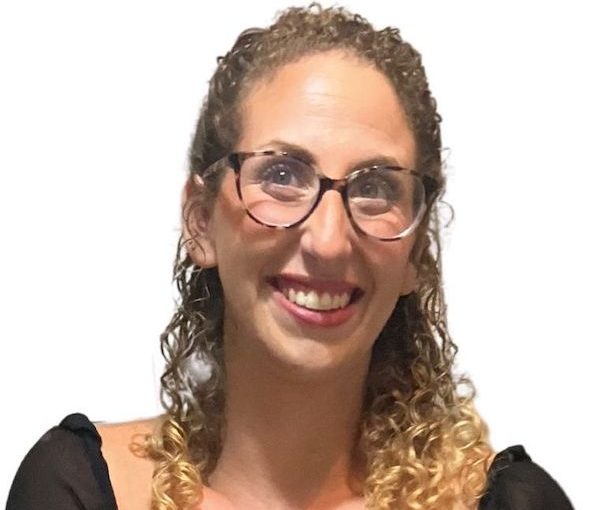Elana Wenner (photo from LinkedIn)
Elana Wenner, who became the director of programming and development at the Jewish Museum and Archives of BC (JMABC) on Aug. 1, brings an enthusiasm and desire to make the stories of the local Jewish community better known and more meaningful.
Born and raised in Vancouver, one of Wenner’s aims is to stress the stories of Jewish people in British Columbia and how all can benefit from, and are connected to, those first Jews who came to the province.
“The story is not just history, it is an ongoing, living story that we are all part of,” she said. “It is something that includes every single Jewish person in BC. We are preserving, maintaining and sharing the stories, but I would also add … we are helping to create new ones.”
Before working at JMABC, Wenner, who obtained a bachelor’s and a master’s in Jewish studies from McGill and Concordia, respectively, taught at King David High School and Vancouver Talmud Torah, schools she herself attended growing up here.
“Coming into this job combines my two-dimensional interest in history and my interest in education, and bringing stories to life to not just children but anyone who is interested,” she said.
Another of Wenner’s goals at the museum is to make exhibits not merely interesting but accessible and enjoyable, believing people will remember things when they feel a strong emotional connection with it.
“My philosophy of education is always about interactive, experiential education – things that people can actually be a part of and interact with instead of just being part of an audience,” she explained. “The idea is people will come, interact and engage with the story and be able to walk away with a piece of it that is a part of them.”
Wenner’s experience as a teacher will help in dealing with any possible challenges the new position may bring, she said. “I have discovered that teaching is a great place to figure out things because it includes the skills one needs for any other job.”
Since starting in August, Wenner has been busy researching places and venues, interacting with current donors, making sure that members are keeping up with their annual contribution and seeking donors elsewhere, as well as handling grant applications and marketing. She is also managing the JMABC social media accounts and providing informational fliers about the museum to synagogues during the High Holiday season.
“I am trying to get awareness of who we are, as many people did not know there is a Jewish museum in Vancouver and I would like the word out there that we exist because we have a lot to share,” she said.
“The history of Jewish Vancouver is such a good story and it deserves to be told [but] so many people just don’t know about it,” she added. “I am lucky to be one of the few who has spent some time digging deeper into this story.”
Wenner herself descends from a family that has been in Canada a long time by local Jewish standards – her ancestors arrived in Saskatchewan in 1888 – and that, she said, helped spark her interest in history and, specifically, Jewish history.
“My ancestors took photos of everything on a Brownie camera,” she recalled. “They developed their own film and it’s almost as if some of them are selfies. They were taking photos of casual life. It is rare to find non-formal photos of that period. You see what life was like, you see how people dressed.”
Daniella Givon, president of JMABC, said of Wenner’s arrival at the museum, “The board of JMABC is very excited to welcome Elana. Elana is full of energy and has a vision for the organization and her role in it. She has been familiar with JMABC since a young age, and has always cared about the organization. We feel fortunate to have her aboard.”
JMABC has several events scheduled for the coming year. On Nov. 21, the museum will hold its annual general meeting, which will feature the launch of Land of Hope: Documents on the Canadian Jewish Experience (1627-1923), edited by Richard Menkis and Pierre Anctil.
Later this fall, in partnership with Jewish Family Services, JMABC will put together the Supper Club, a series of dinners designed to share food and stories that reflect the diversity of the Jewish community in the province. Past menus have included Sephardi meatballs, namoura (orange cake) and Syrian-Argentinian fusion.
For the spring, Wenner is planning a pop-up exhibit that will showcase the original JMABC collection, when it used to be situated at the Jewish Community Centre of Greater Vancouver. “We are hoping to revamp the exhibit and connect the story to where the Jewish community in Vancouver is today,” she said.
During warmer periods of the year, JMABC will continue to offer historic walking tours of Mountain View Cemetery and the Oakridge, Strathcona and Gastown neighbourhoods.
To find out more and to view current online exhibits, visit jewishmuseum.ca.
Sam Margolis has written for the Globe and Mail, the National Post, UPI and MSNBC.


